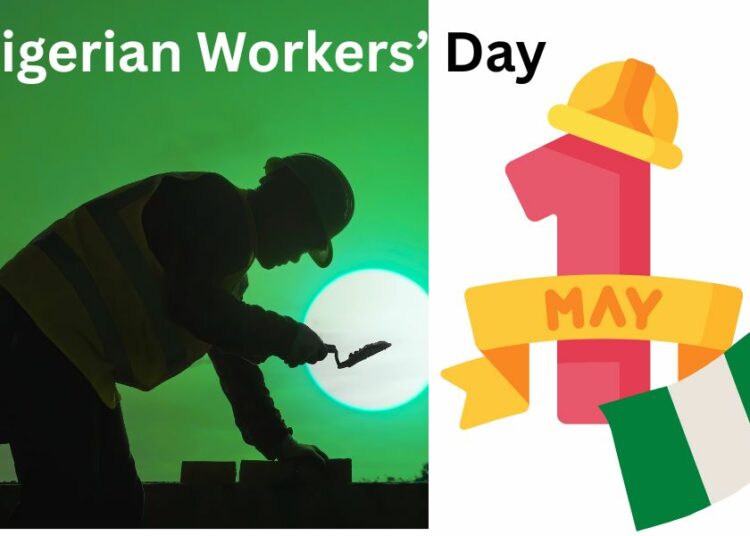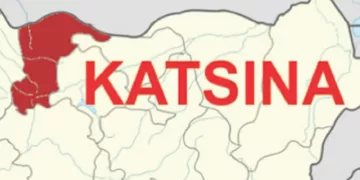As Nigeria marks Workers’ Day today, the celebrations ring hollow for millions of ordinary citizens who continue to bear the brunt of economic reforms without adequate protection.
While the federal government last year formally approved the implementation of the N70,000 new minimum wage for federal public servants—a 133 percent increase from the previous N30,000—this apparent victory for labour masks a troubling reality that demands urgent attention from both government and society at large.
The cruel irony facing Nigerian workers today cannot be overstated. Those who keep the wheels of the economy turning through their daily toil find themselves bearing the disproportionate burden of policies aimed at long-term economic growth.
The government’s bold economic measures—removing the fuel subsidy and allowing the naira to float—may be necessary medicine for a struggling economy, but the absence of adequate social safety nets has left workers exposed to the harsh side effects of these reforms.
The Minimum Wage Act of 2024 represents a step forward, yet implementation remains woefully inconsistent across the nation.
According to the National President of the Nigeria Union of Local Government Employees, Alhaji Haruna Kankara, approximately 20 states have yet to implement the N70,000 new minimum wage for local government workers and primary school teachers.
These states include Yobe, Gombe, Zamfara, Kaduna, Imo, Ebonyi, Cross River, the Federal Capital Territory, Borno, and others. This patchwork implementation creates a two-tier system where workers performing the same duties receive vastly different compensation based solely on geography.
Even more concerning is that the announced wage increase, while significant on paper, has been rapidly eroded by galloping inflation. As Nigeria Labour Congress President Joe Ajaero pointedly observed, Nigerians are now paying electricity tariffs and taxes that exceed the new minimum wage.
The effective purchasing power of N70,000 today is substantially less than what N30,000 could buy just a few years ago. This renders the wage increase largely symbolic rather than transformative for the average worker’s quality of life.
The delayed implementation of the new wage structure further compounds these challenges.
Though the old minimum wage expired in April 2024, with the new one slated to take effect from May 1, 2024, the legislation was only passed into law on July 29, 2024, without backdating the implementation. This bureaucratic lag has cost workers months of increased earnings during a period of severe economic hardship, reflecting a disturbing lack of urgency regarding their plight.
This casual attitude toward the welfare of workers is unacceptable and constitutes a stain on the nation’s commitment to upholding labour rights. It betrays the very principles that Workers’ Day is meant to celebrate—the dignity of honest labor and the fundamental right of workers to a living wage.
A society that fails to honor those whose sweat and toil build its foundations is one that has lost its moral compass.
The challenges facing Nigerian workers extend far beyond wages alone. The absence of reliable public transportation forces many to spend a disproportionate share of their income on commuting. Inadequate healthcare systems leave families vulnerable to financial ruin from medical emergencies.
Substandard housing options in urban centers push workers into distant, sometimes dangerous neighborhoods with grueling commutes. Together, these factors create a perfect storm that traps many workers in a cycle of poverty despite their best efforts.
In the considered opinion of this newspaper, Nigeria’s political and business leaders must recognise that wage increases alone will not solve these deeper, systemic issues.
Efficient transportation systems, effective measures to curb inflation, affordable housing initiatives, and robust social safety nets are all critical components of a comprehensive strategy to improve the lives of the nation’s workforce.
Without addressing these fundamental needs, even substantial wage increases will prove insufficient.
The time has come for the government to demonstrate a true commitment to the well-being of its citizens, particularly those whose labour forms the backbone of the economy.
In our view,mere lip service on Workers’ Day is not enough; concrete actions that uplift and empower Nigerian workers are long overdue. This is not merely a matter of economic pragmatism, though the links between worker welfare and economic productivity are well-established. It is, at its core, a moral imperative. A nation that fails to honor the dignity of its workers and provide them with a decent standard of living is a nation that has lost its way.
Additionally, tax reforms must ensure that workers’ gains are not immediately clawed back through excessive taxation. The current situation where, as NLC President Ajaero noted, “the tax on your salaries is almost higher than the minimum wage increase” negates any real progress and breeds cynicism among those the increases are meant to help.
As we celebrate Workers’ Day, let us reflect on the sacrifices and contributions of Nigeria’s labour force. But let us also commit to doing better—to creating an economic system that rewards hard work with fair compensation, to enacting policies that prioritise the needs of the working class, and to building a society where no one who toils diligently is left behind.
For too long, Nigerian workers have borne the burdens of economic reform without reaping its promised rewards. It is time to change that narrative, to ensure that the engines of progress lift all boats, not just those of the privileged few.











